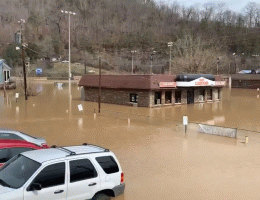COVID-19 travel restrictions by state: What you need to know before you travel
COVID-19 travel restrictions by state: What you need to know before you travel
Eight months into the COVID-19 pandemic and amid a worrisome surge in infections ahead of the holidays, some states are imposing restrictions on travel.
USA TODAY has an update on the states that are discouraging interstate travel by requiring or recommending that visitors and residents returning from other states quarantine. And some states will allow a recent, negative COVID-19 test in lieu of the quarantine. A few states require travelers to fill out health questionnaires when they arrive.
State requirements may apply to visitors from states with high COVID-19 positivity rates, but some states and jurisdictions whose economies are tightly interconnected with surrounding states may exempt certain visitors.
Some counties or municipalities have issued similar advice to travelers, so anyone looking to go on a road trip or take a vacation should check government websites for their destination and anywhere they plan to stop overnight.
AAA maintains an interactive map of of state-by-state coronavirus travel restrictions.
Here the requirements and recommendations by state:
Alaska
As of Nov. 16, residents, nonresidents and workers must submit a travel declaration and self-isolation plan through the state's portal. Travelers must also arrive with proof of a negative COVID-19 test no more than 72 hours prior to departure. Travelers are required to social distance for five days, the median incubation for COVID-19. A second test is optional but not required.
As an alternative, visitors can purchase a COVID-19 test for $250 when they arrive. The test is free for residents. Children under 10 are exempt from the testing requirement. Residents can opt to quarantine for 14 days in lieu of the test.
California
Travelers from other states or countries are urged to quarantine for 14 days on entering the state, and residents are urged to avoid nonessential out-of-state travel.
Connecticut
Travelers from certain states must quarantine for 14 days or submit proof of a negative COVID-19 test no more than 72 prior to arrival. Affected states, excluding New York, New Jersey and Rhode Island, mean those with a positive case rate higher than 10 per 100,000 residents or a seven-day average test positivity rate of more than 10%.
The restriction also applies to anyone who's traveled to a country for which the Centers for Disease Control and Prevention has issued a Level 3 travel health notice. It applies to travelers who have been in any applicable state or country for 24 hours in the past 14 days. It does not apply to travelers who spend less than 24 hours in Connecticut.
District of Columbia
As of Nov. 9, anyone traveling from a state with more than 10 cases per 100,000 people must get a COVID-19 test no more than 72 hours prior to traveling. Visitors from Maryland and Virginia are exempt, as are people visiting for family emergencies or funerals. Anyone spending less than 24 hours in the district does not need to take a test. Visitors who are in Washington for more than three days should get tested within three to five days of arrival.
Hawaii
All arriving travelers age 5 and up must either quarantine for 14 days or test negative for COVID-19 no more than 72 hours prior to the final leg of their trip to Hawaii. Adults 18 or older must register with the Safe Travels Hawaii program before their trip.
Kansas
As of Nov. 4, a 14-day quarantine requirement applies to to six categories of travelers: 1) anyone who's traveled to or from North Dakota on or after Nov. 4, 2) anyone who's traveled to or from Belgium or the Czech Republic on or after Nov. 4, 3) anyone who's traveled to or from North Dakota on or after Oct. 21, 4) anyone who's traveled to or from Andorra on or after Oct. 21, 5) anyone who's attended an out-of-state mass gathering of 500 or more where they did not socially distance and wear a mask, and 6) anyone who's traveled on a cruise ship or river cruise on or after March 15.
The requirements don't apply to anyone traveling through the state, only those whose destination is Kansas.
Maine
Effective Nov. 16, travelers from most states, excluding New Hampshire and Vermont, must quarantine for 14 days or submit proof of a negative COVID-19 test taken no more than 72 hours prior to arrival.
Maryland
The state recommends, but does not require, travelers to get a COVID-19 test no more than 72 hours prior to traveling there. Returning residents and out-of-state visitors are encouraged to get tested when they arrive and quarantine while they wait for the result. Testing is recommended for travelers from states with a positivity rate above 10% or 20 cases per 100,000 population. The District of Columbia, Virginia, Pennsylvania, Delaware and West Virginia are exempt from the recommendation.
Massachusetts
As of Nov. 11, all travelers entering the state (including residents) must fill out a travel form and quarantine for 14 days or produce a negative COVID-19 test result taken no more than 72 hours prior to arrival. Travelers who fail to quarantine may be fined $500 a day.
Lower-risk states are exempt from the requirement, but currently there are only five: Hawaii, New Hampshire, Vermont and Maine. The threshold is fewer than 10 daily cases per 100,000 population and a positive test rate of below 5% on a seven-day rolling average. Transitory travelers and those commuting for work or school are exempt, as are patients seeking or receiving medical treatment, military personnel and critical infrastructure workers.
New Jersey
Travelers arriving from high-risk states are required to quarantine for 14 days. States with an average number of daily cases of 10 per 100,000 population or a 10% or higher positivity rate over a seven-day period are considered high-risk. Nonessential travel to those states is highly discouraged. New Jersey asks arriving travelers to complete a voluntary online questionnaire.
New Mexico
Travelers coming from a high-risk state must quarantine for 14 days. A high-risk state is defined as one with a seven-day rolling average test positivity rate of 5% or greater or a positive test rate of greater than 80 per 1 million residents. Those in quarantine may leave only for medical care.
There are several exemptions: airline workers, public safety or public health workers, military personnel and their dependents, federal employees, federal defense contract workers, first responders and health care workers.
New York
With the exception of essential workers and those coming from contiguous states, all travelers must quarantine for 14 days. Affected travelers can opt to shorten the duration of their quarantine by submitting a negative COVID-19 test taken no more than 72 hours prior to arrival, quarantine for three days and get another test on day four. Providing that result is negative, the traveler may exit quarantine.
Travelers who go out of state for less than 24 hours do not need to quarantine but must get a COVID-19 test on the fourth day following their return.
Ohio
Travelers entering Ohio from a state with a testing positivity rate of 15% or higher are advised to quarantine for 14 days. Nonresidents who have or likely have COVID-19 and haven't recovered are prohibited from entering the state, except for those seeing medical care.
Oregon
Travelers from other states or countries are urged to quarantine for 14 days on entering the state, and residents are urged to avoid nonessential out-of-state travel.
Pennsylvania
The state recommends, but doesn't require, that travelers who have been to states with high levels of COVID-19 quarantine for 14 days. Pennsylvania discourages nonessential travel to and from these states.
Rhode Island
Out-of-state travelers must complete a certificate of compliance with travel quarantine and testing requirements and a health screening form. Out-of-state travelers and returning residents must quarantine for 14 days if they arrive from a state with a COVID-19 positivity rate of more than 5%. Those who can produce a negative test result taken within 72 hours of arrival do not need to quarantine. However, quarantining is preferred.
Washington
Travelers from other states or countries are urged to quarantine for 14 days on entering the state, and residents are urged to avoid nonessential out-of-state travel.










.jpg)